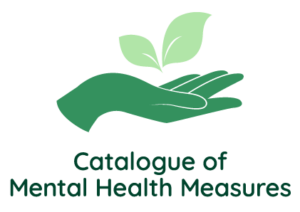BOOKINGS CLOSED, EVENT FULL.
A chance to join Professor Louise Arseneault, and Bridget Bryan, to learn, and use, the Catalogue of Mental Health Measures, an interactive catalogue of mental health and wellbeing measures in British cohort and longitudinal studies.
FREE EVENT! Limited to 50 spaces. Open to all!
Quick links about the event
About the event
Who should attend
Key takeaways
Booking
About the speakers
About the event
Mental health awareness has been steadily increasing in recent years. Estimates of the extent and adverse impacts of mental health problems underline the urgent need for more research to better understand the causes and the consequences of mental ill health, and to identify the most effective interventions. Existing longitudinal and cohort studies provide unique opportunities to answer key questions related to population mental health and wellbeing. But what has been collected? By who? When? And, how?
As part of a CLOSER-funded research project, we have developed a searchable catalogue to help people find information about existing measures of mental health and wellbeing in UK cohort and longitudinal studies. The Catalogue of Mental Health Measures compiles and organises information about mental health measures in over 50 (and counting!) UK cohort and longitudinal studies. It features descriptions of the studies and the measures of mental health and wellbeing they have collected, as well as information about statistical resources and training. The catalogue improves the visibility and accessibility of these measures, making it easier for researchers from across different disciplines to make use of the incredibly rich mental health data currently available in the UK’s longitudinal studies.
This will be an interactive session showing you some of the features of the Catalogue. Bring your laptop, iPad, or mobile phone with you so you can try it out!
Who should attend
This new resource will be useful for researchers from across different disciplines and career stages. The Catalogue may be particularly useful for early career researchers utilising data that has already collected and researchers less familiar with the mental health field – but it may also hold some surprises for experienced mental health researchers.
Key Takeaways
Delegates can expect to take away from this webinar:
- Appreciate the value of cohort and longitudinal studies for mental health and wellbeing research;
- Discover new data resources and mental health measures;
- Learn how to use the Catalogue of Mental Health Measures.
About the Speakers

Louise Arseneault’s research focuses on the study of harmful behaviours such as violence and substance dependence, their developmental origins, their inter-connections with mental health, and their consequences for victims. She is taking a developmental approach to investigate how the consequences of violence begin in childhood and persist to mid-life, by studying bullying victimisation and child maltreatment. Louise also studies the impact of social relationships including social support and loneliness on mental health. Her research aims are to answer questions relevant to psychology and psychiatry by harnessing and combining three different research approaches: developmental research, epidemiological methods and genetically sensitive designs. Louise’s work incorporates social as well as biological measurements across the life span.
Louise is the Economic and Social Research Council (ESRC) Mental Health Leadership Fellow. Louise’s fellow role with the ESRC includes providing intellectual leadership and strategic advice in the priority area of mental health. It is a broad agenda including engaging research communities, promoting collaborations, advocating for mental health research, championing the co-design and co-production of research and providing advice to the ESRC and other research councils. She provides advice on how social science research can best address the challenges that mental health poses for our society, communities and individuals.

Bridget Bryan’s research focuses on the production and maintenance of mental health inequalities using qualitative and quantitative approaches. She joined the team in July 2018 to undertake a review the mental health measures in British longitudinal studies and assist in the development of the catalogue. Before joining the project, she completed a Bachelor of Arts (Honours) at the University of Sydney and a Master of Science in Sociology at the University of Oxford. Previously, Bridget has worked in research focusing on workplace mental health and the Australian forensic mental health system at the University of New South Wales, the Mental Health Commission of NSW and the University of Oxford.



